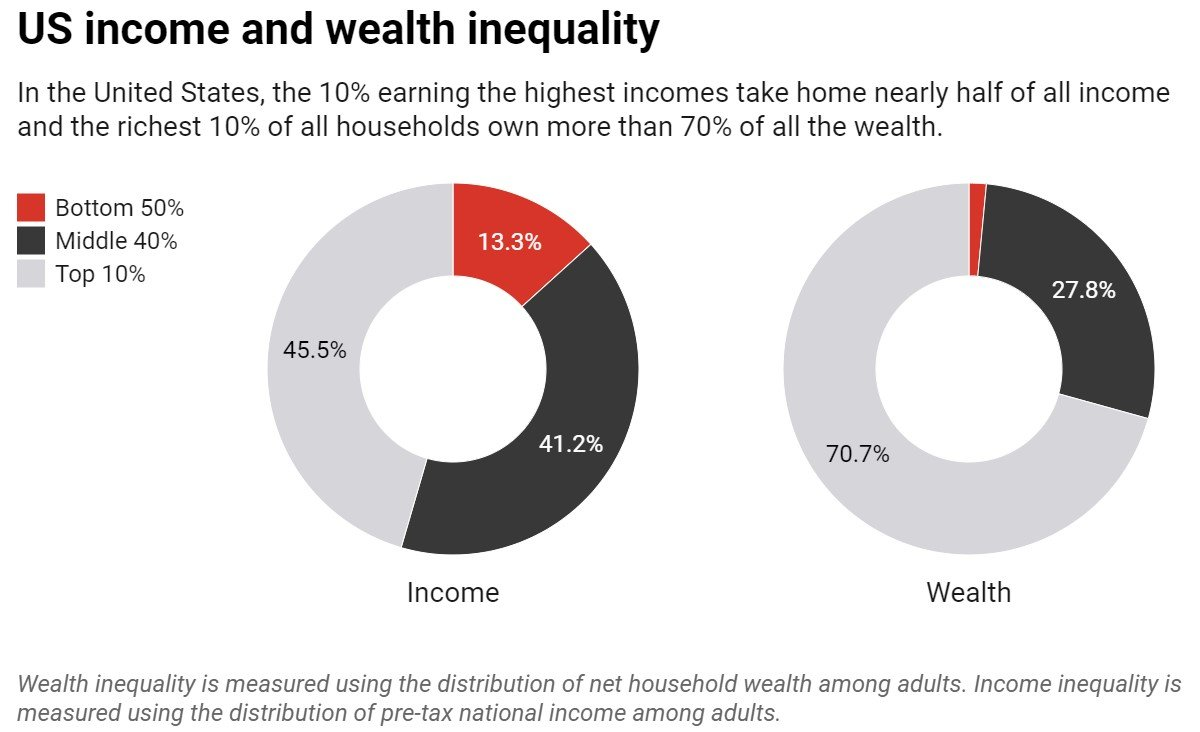Gina Raimondo, as the former U.S. Commerce Secretary and Governor of Rhode Island, plays a pivotal role in shaping the future of American economic policy. Her leadership within the Biden administration has significantly influenced the direction of key initiatives, including the Infrastructure Investment and Jobs Act, which aims to revitalize America’s infrastructure. Anticipation builds around Gina Raimondo’s potential impact as she prepares for the challenges and opportunities leading up to the 2025 elections. With a focus on innovative change, she advocates for bold reforms that support working families, embodying the core values of her immigrant heritage. As she pushes forward with these monumental goals, Raimondo is not just shaping policies; she is redefining what it means to govern effectively in the modern era.
As the landscape of American leadership continues to evolve, figures like Gina Raimondo emerge as beacons of change and progress. With her background as the Governor of Rhode Island and now as the U.S. Secretary of Commerce, Raimondo exemplifies what it means to drive significant legislation that impacts everyday lives. The Infrastructure Investment and Jobs Act stands as a testament to her commitment to enhancing U.S. economic resilience, a key component of the Biden administration’s accomplishments. With discussions increasing about her role heading into 2025, the focus shifts to how her policies will influence the nation’s competitive edge on the global stage. By prioritizing innovative solutions and inclusivity, Raimondo is setting a new benchmark for what American leadership can achieve.
Gina Raimondo’s Vision for Economic Change
Gina Raimondo has long been an advocate for progressive economic reforms, emphasizing the need for change to uplift the working and middle-class Americans. As the former Rhode Island governor, she repeatedly championed policies that aimed at reducing taxes and fostering educational opportunities. Her initiatives, such as making community college tuition-free and implementing annual tax cuts, laid the groundwork for an inclusive economy. Raimondo’s belief that true progress sometimes requires ‘breaking things’ reflects her commitment to shaking up the established norms in pursuit of fairness and opportunity for all.
In her recent discussions, Raimondo pointed out that her approach centers on ensuring that the benefits of economic changes do not come at the expense of vulnerable communities. This commitment to inclusive growth was evident during her tenure as U.S. Commerce Secretary, where she prioritized understanding complexities in supply chains. Her ability to tackle issues head-on without compromising on compassion has set her apart as a powerful force in shaping policies that resonate with everyday Americans. Raimondo’s strategic thinking now looks towards the future and prepares for challenges that will arise post-2025.
The Impact of the Infrastructure Investment and Jobs Act
The Infrastructure Investment and Jobs Act, spearheaded during Raimondo’s time as Commerce Secretary, represents one of the Biden administration’s hallmark achievements. By prioritizing infrastructure, the act not only aims to modernize American roads, bridges, and public transit systems but also creates numerous job opportunities across various sectors. With an emphasis on sustainability, the act includes provisions for enhancing green technologies and investing in local communities, aiming to create a robust and resilient economy. Raimondo played a crucial role in advocating for this legislation, demonstrating her understanding of the direct link between infrastructure and economic growth.
In implementing the Infrastructure Investment and Jobs Act, Raimondo has highlighted the necessity for collaboration at both federal and local levels. By fostering relationships with state governments, municipalities, and private sectors, the effectiveness of the act is amplified, ensuring that it meets the needs of all Americans. The initiative also underlines the Biden administration’s philosophy of collective response to challenges, reinforcing the idea that America thrives when it works in concert with allies and partners worldwide. This strategic approach not only strengthens the current infrastructure but also paves the way for sustained economic vitality well into the future.
Lessons Learned from the Biden Administration’s Economic Policies and Their Future Implications
Reflecting on her time within the Biden administration, Gina Raimondo recalls the intricate balance required to navigate economic policies in a divided government. With the challenges posed by a 50-50 Senate, she emphasizes that achieving bi-partisan agreement has not always been straightforward. However, the successes derived from such efforts have led to significant advancements in crucial areas like job creation and economic recovery initiatives. Raimondo argues that while critics may point to shortcomings, understanding the complexities involved reveals a more robust framework for navigating future policies.
As the political landscape continues to evolve, so do the lessons learned from the implementation of the Biden administration’s policies. Approaches taken during crises, such as the COVID-19 pandemic, reflect the necessity for a balance between immediate relief measures and long-term economic stability. This experience informs future strategies to tackle issues like inflation and workforce shortages. By addressing these challenges directly and fostering a collaborative environment that includes various stakeholders, Raimondo’s insights promise to guide economic policy-making well beyond her tenure and into the next chapter for American governance.
Rhode Island’s Economic Transformation Under Gina Raimondo
Gina Raimondo’s tenure as the governor of Rhode Island was marked by transformative policies designed to revitalize the state’s economy. Her initiatives to cut taxes and raise the minimum wage illustrated her commitment to improve living standards for average residents, while her efforts to make community college accessible emphasized the importance of education in fostering economic mobility. By implementing these strategies, she not only aimed to address immediate economic concerns but also laid the groundwork for long-lasting change, transforming Rhode Island from a struggling state into a beacon of progress and innovation.”},{
Frequently Asked Questions
What impact did Gina Raimondo have as the US Commerce Secretary on the Infrastructure Investment and Jobs Act?
As the US Commerce Secretary, Gina Raimondo played a pivotal role in shaping the Infrastructure Investment and Jobs Act, aiming to enhance America’s infrastructure while boosting economic growth and job creation. Her leadership emphasized the importance of strategic investment in domestic manufacturing and strengthening supply chains, which were crucial during the COVID-19 pandemic.
How did Gina Raimondo contribute to the Biden administration’s economic initiatives?
Gina Raimondo significantly contributed to the Biden administration’s economic initiatives by advocating for the CHIPs and Science Act, which focuses on domestic production of semiconductors critical for national security and technology innovation. Her approach emphasized partnerships with other countries to maintain supply chain integrity and create robust economic opportunities.
What were Gina Raimondo’s key achievements during her tenure as the governor of Rhode Island?
During her tenure as the governor of Rhode Island, Gina Raimondo achieved several key milestones, including the implementation of annual tax cuts, raising the state minimum wage, and making community college tuition free. Additionally, she reduced state regulations by 30%, all aimed at fostering a more favorable economic climate.
How did Gina Raimondo address supply chain issues during her time as US Commerce Secretary?
Gina Raimondo addressed supply chain issues by analyzing and understanding the complexities involved, especially highlighted during the COVID-19 pandemic. Her efforts led to building critical relationships with global partners, ensuring the stability and efficiency of supply chains, particularly in pharmaceuticals and technology sectors.
What philosophy did Gina Raimondo advocate for regarding America’s role in global trade?
Gina Raimondo advocated for a collaborative approach in global trade, emphasizing that America should not go it alone. She stressed the importance of building relationships with other nations to ensure fair trade practices, especially in light of challenges posed by countries like China that do not adhere to free trade rules.
What is Gina Raimondo’s stance on economic initiatives and social programs?
Gina Raimondo believes in blending economic initiatives with social support, arguing that effective labor market policies must address worker needs, such as childcare. She asserts that companies receiving funding should engage with social programs to ensure they have sufficient workforce, transforming these initiatives into responsible fiscal policies.
How does Gina Raimondo view the challenges of implementing policy in a 50-50 Senate?
Gina Raimondo recognizes the challenges of implementing policies in a 50-50 Senate, acknowledging that achieving legislative goals often requires compromises. She emphasizes that despite the difficulties, the Biden administration accomplished significant milestones that have positively impacted American families and the economy.
What is the significance of Gina Raimondo’s background in her political career?
Gina Raimondo’s background as the granddaughter of immigrants has profoundly influenced her political career. Her family’s emphasis on hard work and the American Dream motivated her to pursue social and economic policies aimed at improving opportunities for everyday Americans, reflecting her commitment to fairness and equity.
What are Gina Raimondo’s views on the stimulus acts during the COVID-19 pandemic?
Gina Raimondo defends the stimulus acts as essential for economic recovery during the COVID-19 pandemic. She highlights the urgent need for financial support to prevent prolonged unemployment and acknowledges the criticisms regarding inflation, asserting that adequate stimulus was crucial in restoring the economy.
| Key Points | Details |
|---|---|
| Change & Improvement | Gina Raimondo emphasizes the necessity of change to facilitate improvement, suggesting that progress often involves difficult decisions. |
| Economic Policies | During her tenure, she cut taxes, raised the minimum wage, and made community college tuition free, while also reducing regulations by 30%. |
| Supply Chain Response | Addressing supply chain issues during COVID-19, her team created spreadsheets to manage essentials and built international relationships for better cooperation. |
| Legislation Achievements | Raimondo played a key role in the CHIPs and Science Act which aims to enhance domestic semiconductor production, addressing national security issues. |
| Bipartisanship Challenges | Reflecting on her achievements under a divided Congress, she acknowledges the challenges of creating consensus and driving change. |
| Employment Initiatives | She argues for linking economic initiatives with social programs, highlighting the necessity of childcare for workforce participation. |
Summary
Gina Raimondo has consistently shown that tackling the complexities of economic policy and governance is essential for creating a fair and prosperous society. Her focus on making impactful changes while ensuring that no one is left behind reveals her dedication to the American Dream. By promoting significant legislation, addressing supply chain issues, and advocating for responsible economic practices, she embodies a forward-thinking approach that strives to benefit all citizens.



